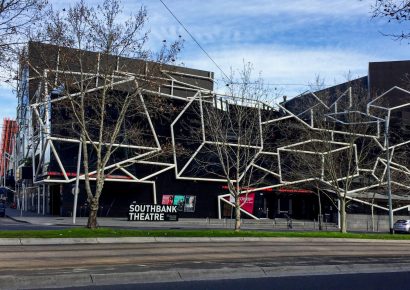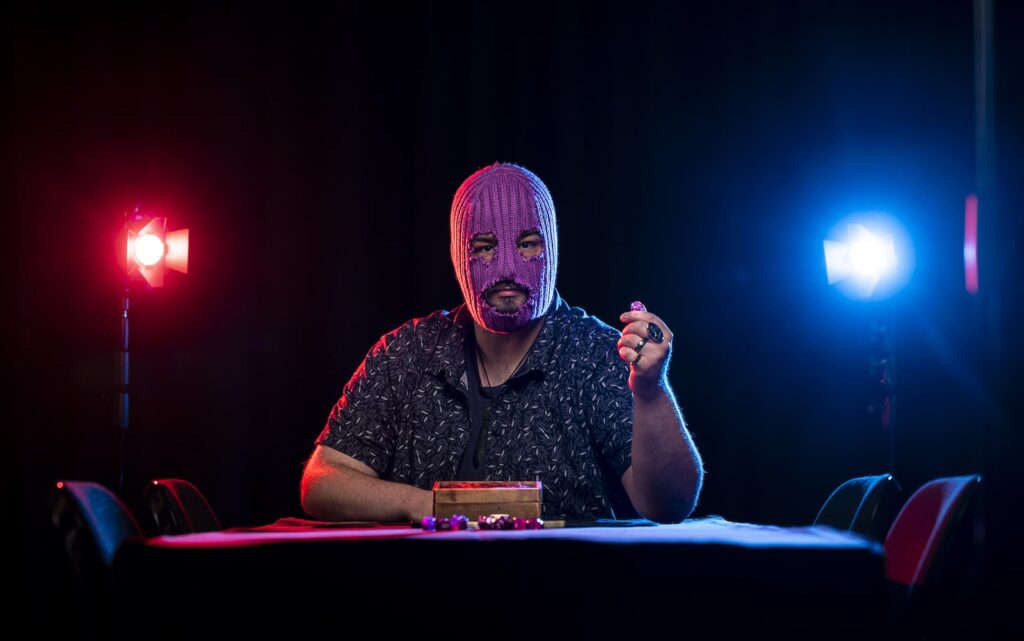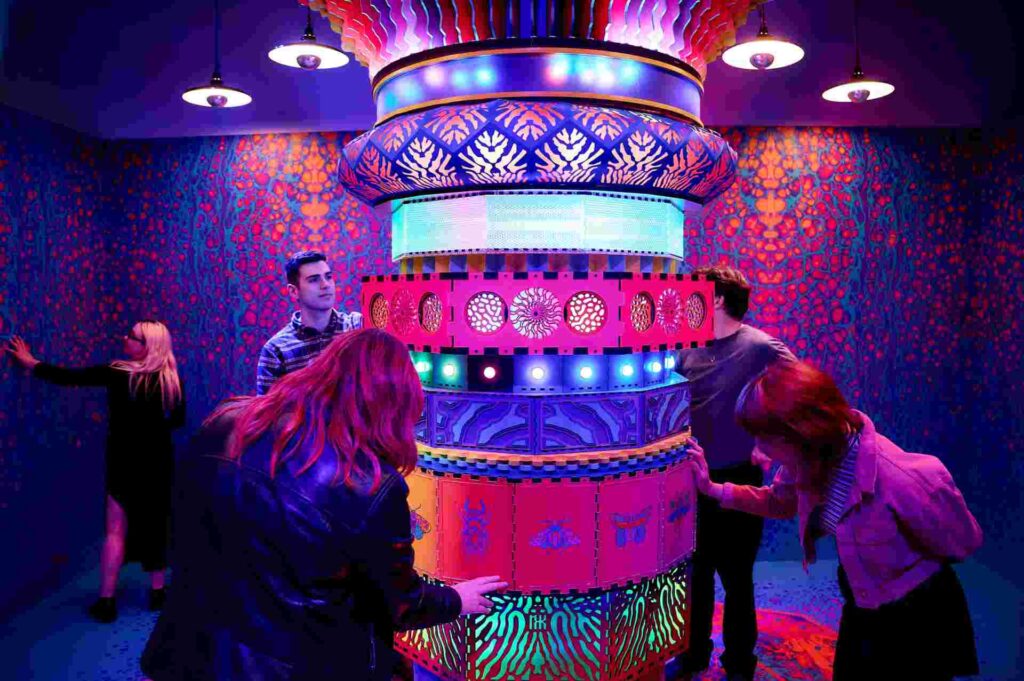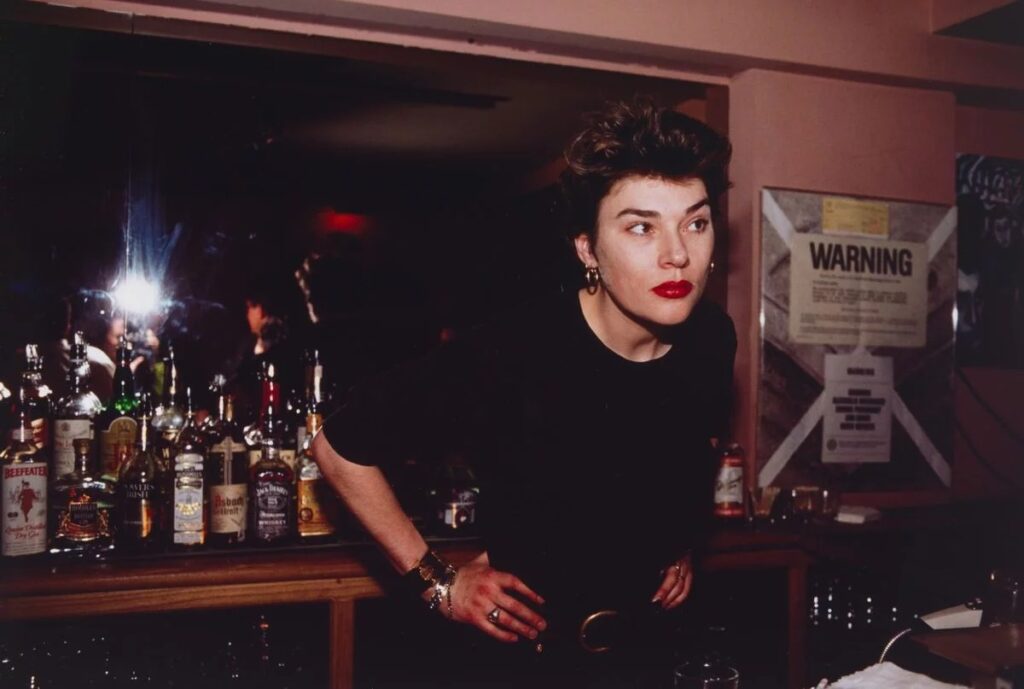When restrictions around mass gatherings began to tighten as a result of coronavirus, Melbourne International Comedy Festival was so close you could almost hear the laughter.
For most performers, MICF season accounts for a huge chunk of their income for the year and can see them performing as often as three times a day. When the news broke that the festival was cancelled, it was devastating.
Rather than wallowing in disappointment, founder of comedy production and touring company Serious Comedy, Carrie Hardie, quickly got to thinking about alternative ways to keep her roster of comedians working through the shutdowns.
The result saw her bringing together comedians Yianni Agisilaou, Andrew McClelland, Louisa Fitzhardinge, Simon Palomares and actor Alan Lovett for a series of online live shows.
It’s a high production affair filmed by Director Richard Martin Edwards presented using Zoom, resulting in personal yet polished sets streamed straight from the performers’ lounge rooms to yours.
While the prospect of performing stand-up in a near-empty room to nothing but a screen and some cameras was daunting for all involved, it’s proven to be an enlightening experience for the Serious Comedy crew.
“There were so many obvious concerns, like the vibe won’t be the same, you can’t hear the laughter so how long do you pause? Do you pause?” explains McClelland.
For Fitzhardinge, whose show Comma Sutra is a musical comedy cabaret, audience interaction is a big part of her performance, so adapting to an online format has been a significant adjustment.
“After songs you expect applause; if you don’t get applause after a song, it really means you’ve done something very bad,” she says. “We’ve set up a format where we use AUSLAN clapping so we can see people if they’re laughing or clapping, so you can get a bit of a vibe of how things are going.”
Not only have the digital shows allowed the comedians to continue working despite the current circumstances but, “Your room has grown indefinitely,” as Palomares puts it.
“We’re performing less, but oddly enough over Zoom, we’re performing to much bigger crowds,” says McClelland. “I had 200 in last week for my show, bless ’em, because people all over the world can come. People who normally need to get babysitters or worry about parking, they can just log in from home.
“And the toilets are as clean as you make them,” he adds.
Having to reimagine how to present their work and what it means to be a performer has been a big learning curve, too.
“Because I know I’m not going to be able to hear laughter, it’s made me realise how aware I always am, in a real gig, of laughter,” says Agisilaou.
“I found there was a freedom in just performing it because I was like, ‘Okay, I’m not expecting anything. I’m just going to give as good a performance as I can give and I don’t have that tyranny of judging myself,” he continues.
Hardie and her comedians are also excited about what live streaming could mean for the future of the industry.
“What’s interesting is that everyone keeps describing it with reference to the thing that already exists, and I think it’s its own thing. It’s not going to the theatre, it’s watching a live event at home,” says Agisilaou.
“I ran into a stand-up yesterday on the street, who I won’t name, and they were saying, ‘No, I’m not going to do that online stuff, it’s not for me. I’m going to wait until it comes back’,” adds McClelland. “I didn’t say it, but I was thinking, ‘That’s madness. It’s a new frontier. You can’t wait for it to go back because even when it does go back, it will be different.’
Not only has her experiment paid off, but Hardie is particularly proud of the ‘pay as you can’ model she has implemented for the digital shows.
While she wants to ensure that those financially impacted by the pandemic are still able to access and enjoy the arts, she is wary of contributing to a culture in which audiences expect free content.
“I know a lot of people are under a lot of financial stress at the moment, which is why we’ve done a pay what you can model. I really don’t want to train audiences to expect people to give away their work for free. I think that’s something we’re going to have to be really careful of.”
For show times, tickets and everything you need to know about Serious Comedy’s Live Online Lockdown Comedy Specials, visit the Serious Comedy website.







